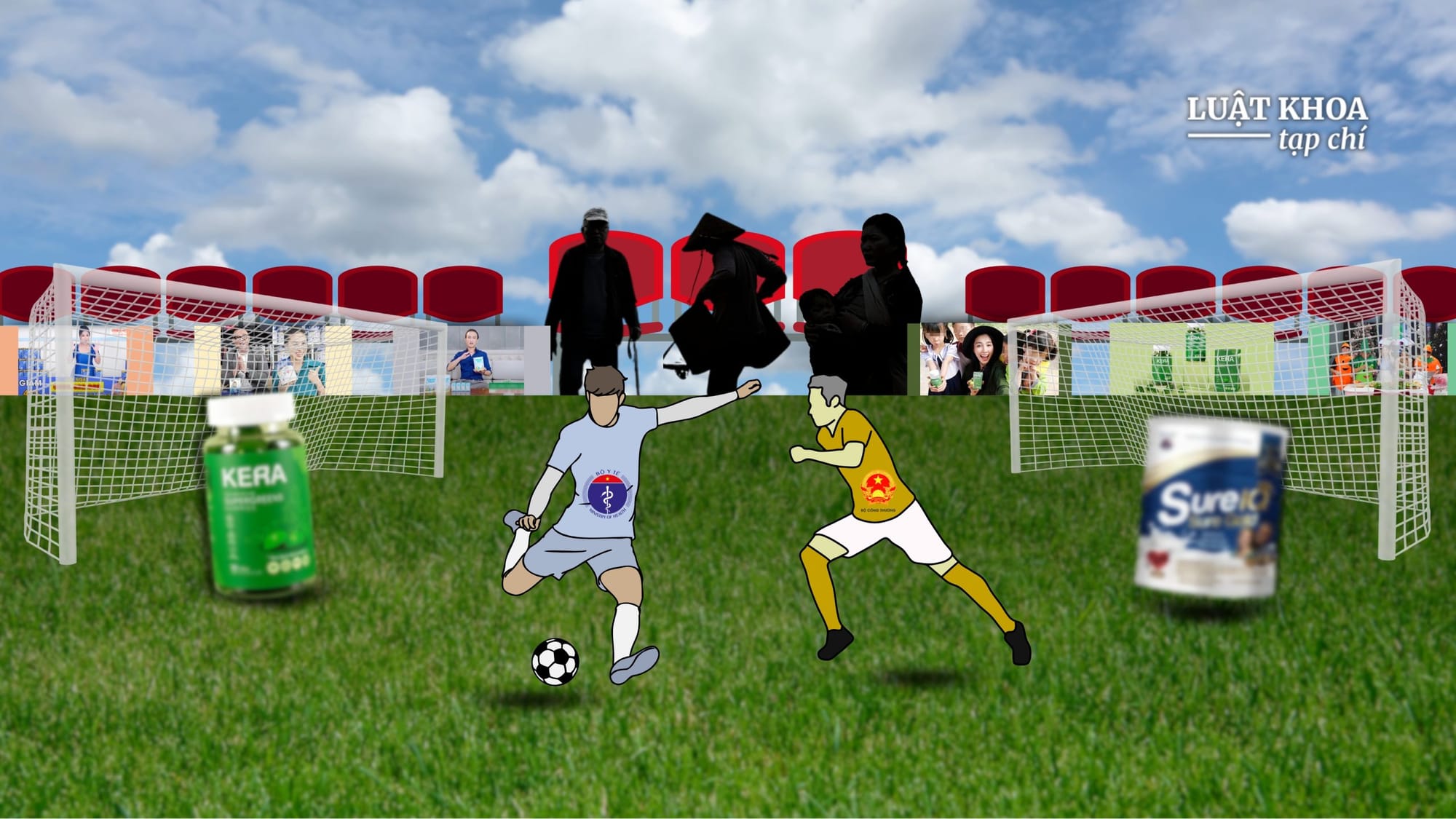Bảo Lâm wrote this Vietnamese article, published in Luật Khoa Magazine on April 24, 2025.
In early April, a criminal investigation into food fraud involving Kera vegetable candy—produced by Asia Life JSC (Đắk Lắk) and Chị Em Rọt Group (Hồ Chí Minh City)—was launched by Việt Nam’s Ministry of Public Security. Authorities acted only after a social media user known as “Sư tử ăn chay” raised alarms online, sparking a heated public debate.
The incident, however, proved to be just the tip of the iceberg. By mid-April, the initial investigation had uncovered multiple networks producing and distributing counterfeit milk and medicine. This has exposed significant failures in the country’s regulatory system and raised serious questions about the effectiveness of agencies meant to protect public health and consumer rights.
Massive Counterfeit Milk Operation: Nearly 600 Fake Products
On April 11, 2025, the Ministry of Public Security arrested eight individuals linked to a massive milk fraud ring involving Rance Pharma and Hacofood Group. Between 2021 and 2024, these companies allegedly produced nearly 600 types of counterfeit milk powders, generating close to 500 billion đồng in illegal profits and causing state losses of over 28 billion đồng through tax fraud.
The ringleaders, Hoàng Mạnh Hà and Vũ Mạnh Cường, operated out of the Phú Nghĩa Industrial Park in Hà Nội’s Hà Đông district. They established a complex corporate “ecosystem” of two parent companies and nine subsidiaries, which they used to self-declare and register hundreds of products. In Vĩnh Phúc province alone, they submitted 215 product registration files between 2021 and 2023, facilitating the distribution of millions of fake nutritional items.
The counterfeit products, sold under brands like Talacmum, Cegold, and Ikidmi, were marketed as infant formula, therapeutic supplements, and baby foods, targeted towards vulnerable groups like children, pregnant women, and chronically ill patients.
While marketing campaigns on social media featured doctors and influencers, most products lacked the advertised premium ingredients like bird’s nest or cordyceps. Under Vietnamese law, a product is legally classified as fake if its real ingredients fall below 70% of the declared content. By April 22, authorities had publicly named 12 counterfeit brands and were investigating 72 more in connection with the case.
Counterfeit Medicine Network Busted
The counterfeit milk scandal was not an isolated incident. On April 16, police in Thanh Hóa dismantled a separate, major fake drug operation allegedly led by Nguyễn Tiến Đạt.
Active since 2021, the ring is accused of generating nearly 200 billion đồng in profits. Fourteen suspects were arrested under Article 194 of the Penal Code for producing and distributing fake medical products.
During searches across six provinces, authorities uncovered over 10 tons of raw materials and nearly 10,000 boxes of counterfeit supplements and medicine, which the group had distributed online or disguised as “hand-carried imports.”
The Blame Game
In Việt Nam, businesses are legally required to register their products, but when scandals break, accountability often proves elusive as ministries and agencies deflect blame.
After the fake milk case went public on April 14, the Ministry of Industry and Trade immediately disavowed responsibility, citing a 2018 decree that assigned oversight to the Ministry of Health. A day later, the Ministry of Health issued only a vague statement about “coordinating” with other agencies, without clarifying its leading role.
Local agencies in Hà Nội followed suit and started pointing fingers. On April 17, a health official claimed that prior product tests in 2023 and 2024 had found “no violations,” while the city’s Department of Industry and Trade deferred to the Health Ministry, citing a lack of jurisdiction. Meanwhile, the Department of Planning and Investment was identified as the responsible licensing authority.
The incident occurred despite the fact that these fraudulent companies had operated in plain sight for years, registering hundreds of products and distributing millions of fake goods without a single inspection or intervention, while consumers, including children and patients, unknowingly consumed them. This exposes glaring loopholes in Việt Nam’s product monitoring system. If enforcement only comes after the damage is done, are dishonest companies being handed a golden opportunity to profit at the public’s expense?
Endorsements of Deception
The web of deception was made wider by the involvement of several public figures who promoted the counterfeit products. On April 14, Dr. Lê Thị Hải, the former director of the National Nutrition Center, admitted to endorsing products without verifying their ingredients. Another former deputy director from the same institute claimed he was “taken advantage of” after appearing in ads.
On April 18, prominent VTV anchor Quang Minh publicly apologized for promoting fake milk, claiming he had trusted the legal documents he was shown. He was later fined over 37 million đồng by the Ministry of Culture, along with MC Vân Hugo.
When accountability is passed around like a hot potato by government agencies, and fake products are endorsed by doctors and celebrities, the ultimate question remains: who is truly protecting the Vietnamese consumer?

